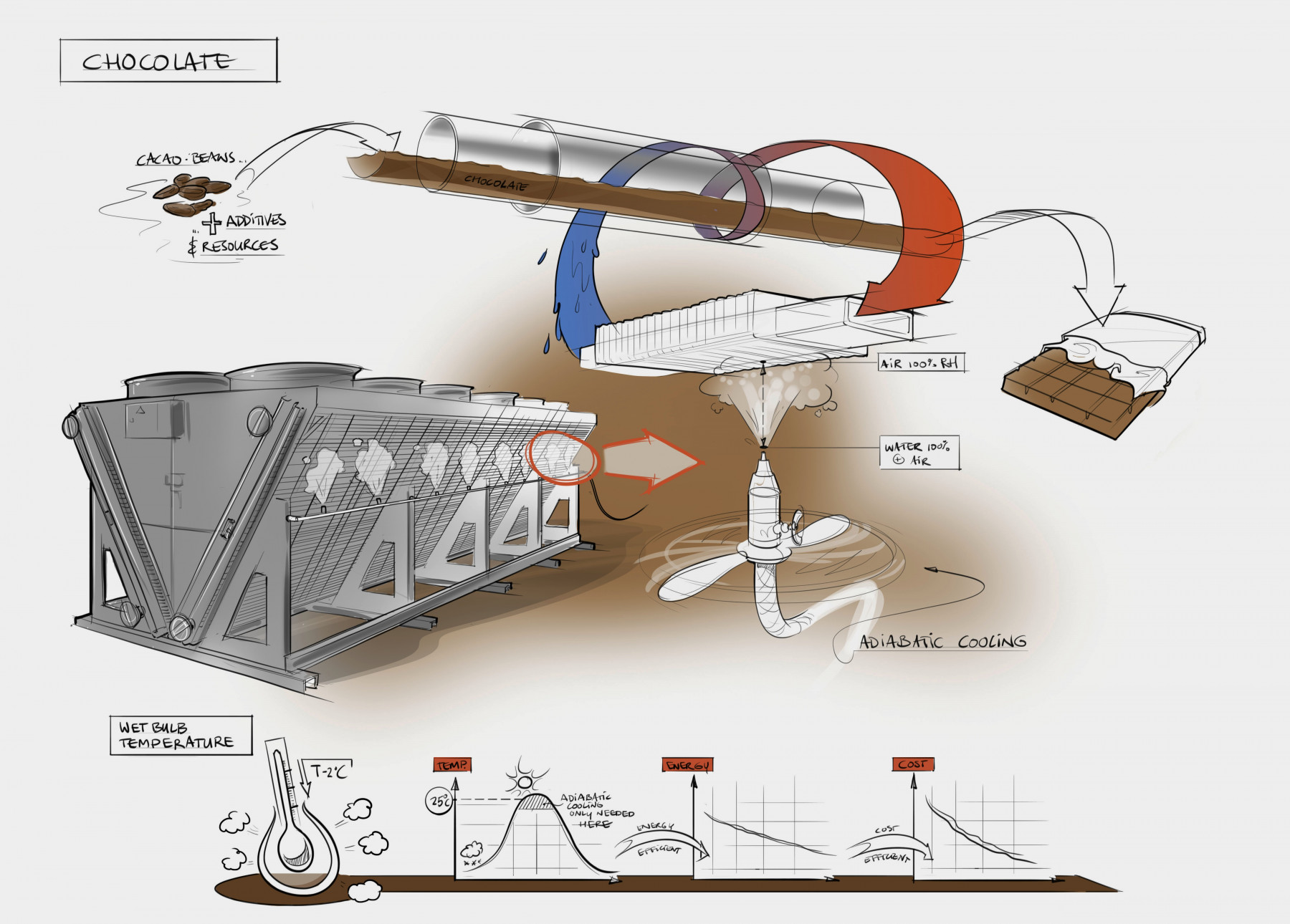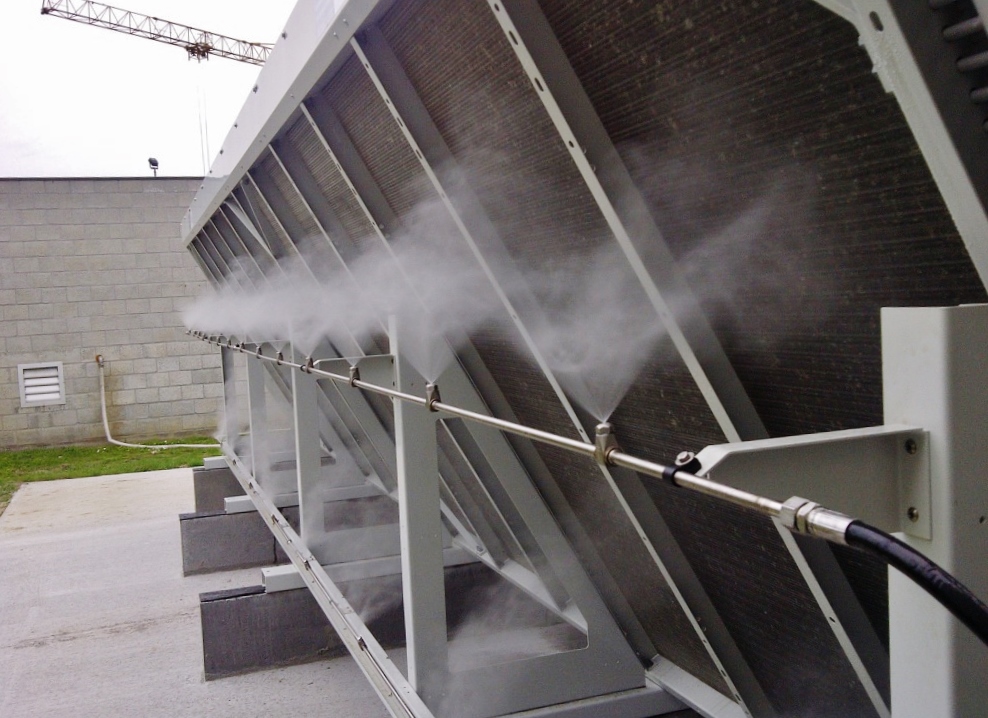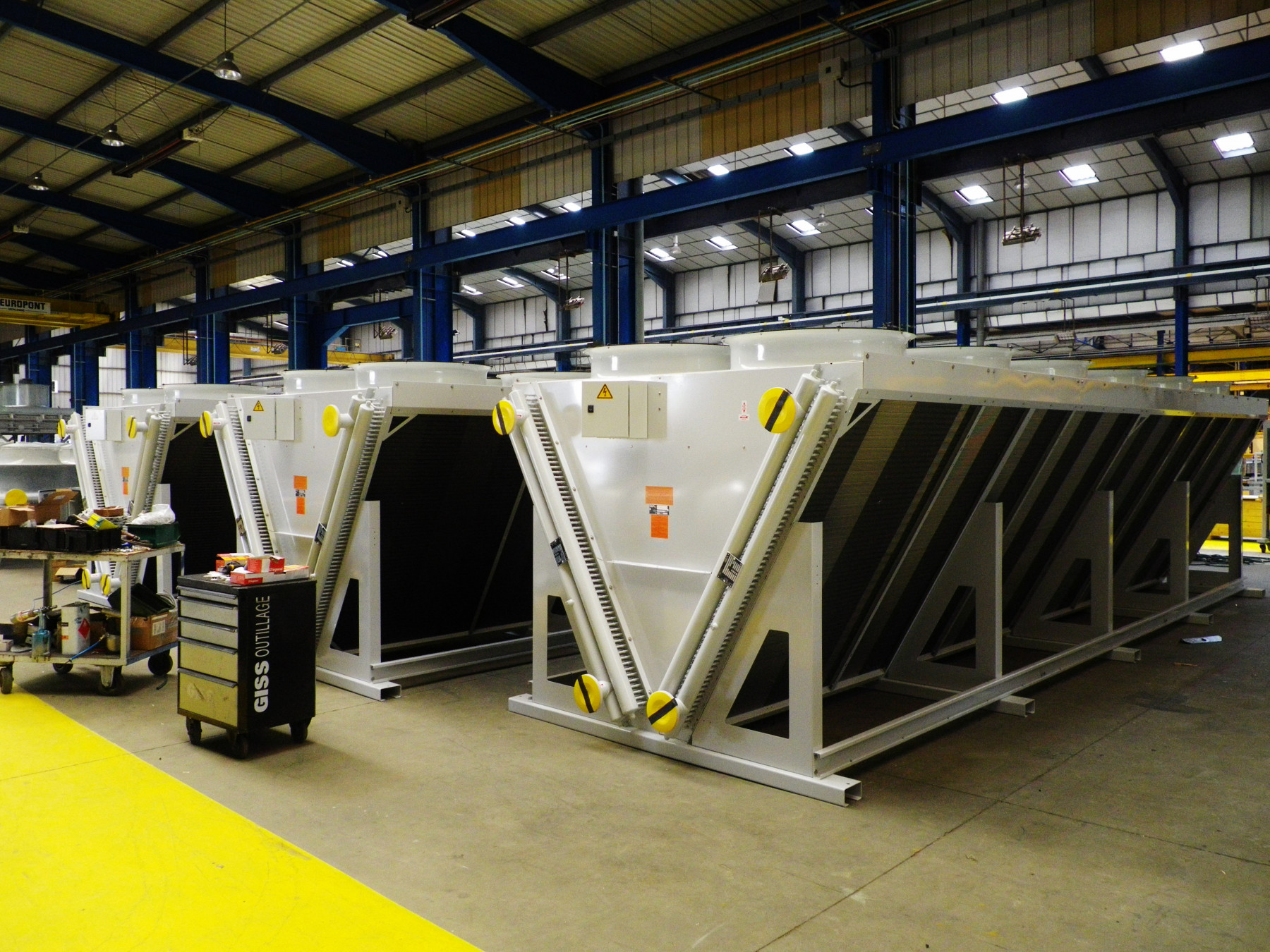
Chocolate!
When it comes to chocolate there is lots of prejudices, especially when we talk about its sweetness. But chocolate itself isn’t unhealthy. It’s the sugar and fat both not beneficial to our health. For that reason, rather choose a bar of dark chocolate then a milky bar. Adiabatic cooling also meets with a lot of prejudice. The majority assumes it requires and consumes huge amounts of water and energy, is susceptible to bacteria, and responsible for unpleasant working conditions. Is it the prejudices in these two subjects making chocolate and adiabatic cooling a perfect match?
The process
To produce chocolate, cacao is essential. Dried and fermented beans are roasted then grinded. The cacao powder is the base for producing chocolate: it’s mixed, refined, grinded again, mixed with cacao butter and last but not least… tempered. In each production step temperature is highly important. Either heat is required, and further in the process we need to temper (or cool) the chocolate again. Cooling is important to transform the chocolate into solid state. The exact temperature is very important for the quality of the final product.
The project
This case is about energy optimization for a chocolate factory. Our client was looking for a solution to reduce energy and water consumption in its process. Kapp’s expertise came in handy in the refrigeration part of the process. In collaboration with an engineering company we suggested the perfect solution: an adiabatic cooler. An adiabatic cooler is comparable to a dry cooler, with the difference its possibility to atomise water. In winter time, when the ambient temperature is low enough it will function as a normal dry cooler . When temperatures rise atomisation will take care of peak cooling… it provides extra cooling capacity without causing floods.
The choice
The result is a very effective cooler, suitable for all seasons. It saves significant amounts of energy and water. The adiabatic cooler was a perfect fit for this application. Kapp was awarded the contract, because:
- Huge savings in energy- and water consumption
- Plug & play
- Compact solution
- ROI: < 2 years

